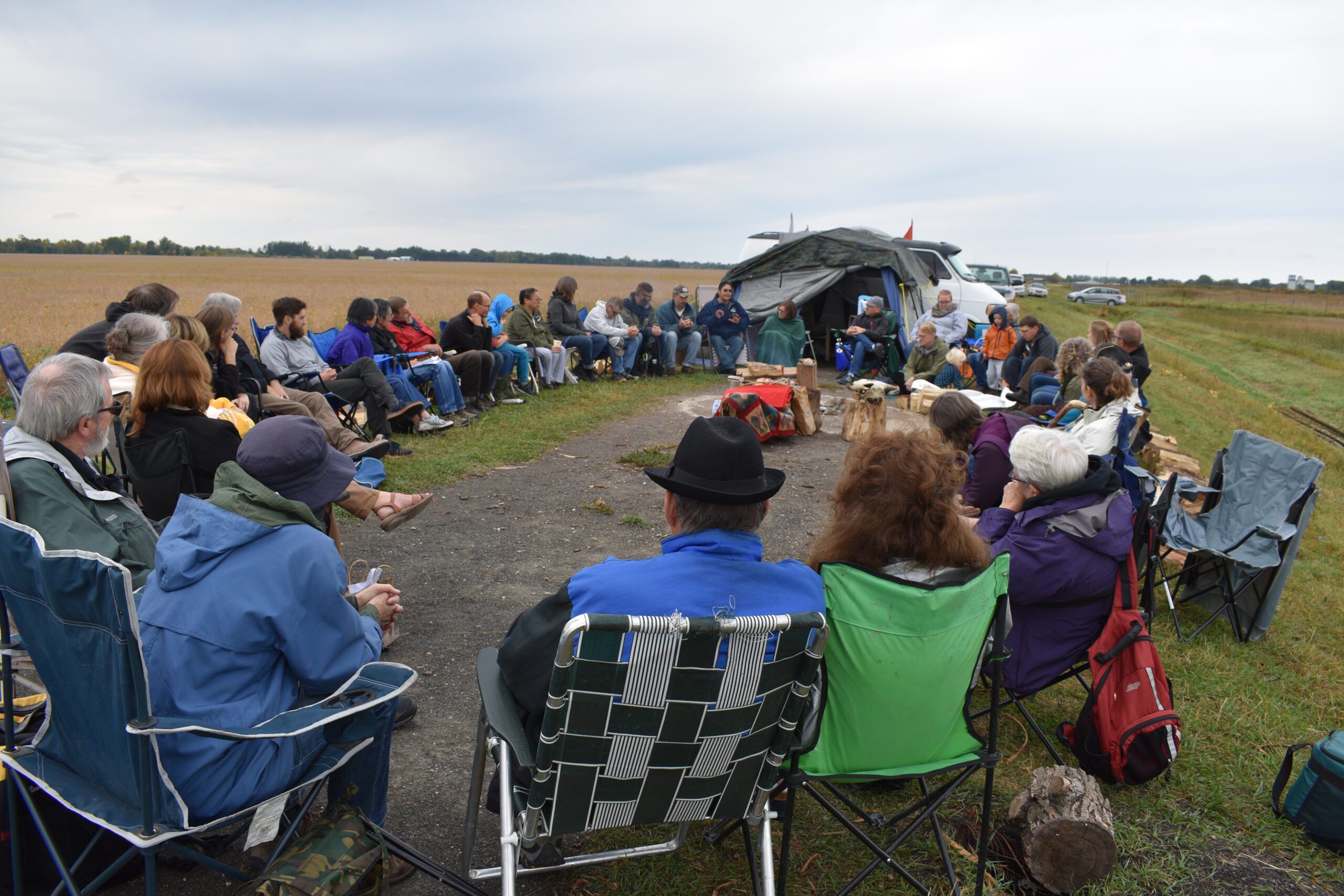In the predawn darkness of July 11, 2018, Geraldine McManus, a two-spirit Dakota woman in her 50s, lit a sacred fire in the midst of driving rain. She had parked her camper van on a gravel road along the border between Manitoba and North Dakota, a place where a series of pipes owned by Calgary-based Enbridge Inc. carry diluted bitumen from the Alberta tar sands to Superior, Wis. McManus had come to protest the expansion of Line 3, a $9-billion project that will soon pump more than 500 barrels of oil under that gravel road every minute.
The road is on Crown land, and RCMP officers and border patrol agents assured McManus she had a right to be there. Her camp didn’t directly impede construction, but she wanted to hold vigil, to witness the destruction being enacted on her people and their land. Over time, supporters and allies came to witness with her.
You may unsubscribe from any of our newsletters at any time.
McManus’s camp is only one of hundreds of grassroots encampments that have sprung up in public parks and on the steps of government buildings to draw attention to injustices such as resource extraction on Indigenous land, abusive child-welfare systems and violence against Indigenous women and girls. McManus sees these camps as opportunities for non-Indigenous people to participate. “At every camp we’ve put up, reconciliation happened,” she says. “We didn’t think about that; we were busy protecting the land. But it happened.”
On a grey September morning, McManus gestured at the yellowing soybean fields and spoke to group of visitors. “All this land used to be Dakota land,” she said. “Now look at the chunk I get. I get a road.” She laughed and sat down in her lawn chair to rest her aching back.
About 40 people from nearby Mennonite and United churches were there that morning. They came with ceremonial tobacco, baked goods, ginger ale and words of encouragement. They arranged lawn chairs in a ring around the sacred fire, buttoned their jackets against the fall chill and sat down to listen.
“I spend a lot of time alone here in prayer,” McManus said. She looked around the circle. “I wonder what brings you all here. We’re getting to a point of understanding the environment. Are we getting to an understanding of Indigenous people?”
After she spoke, Steve Heinrichs, a Mennonite who spent five days in prison in August for standing with Indigenous activists in British Columbia blocking the Trans Mountain pipeline, stood up. “I think we’ve passed the point where we can have Sunday school conversations about Creation care,” he said. “It’s time to make civil disobedience a normative expression of Christian discipleship.” Beside him, Rev. Bob Gilbert, a minister at Augustine United in Winnipeg, nodded his head.
Also present was Sandra Reimer, a Mennonite who struck up a friendship with McManus after hearing about the camp on the radio in the summer. Reimer had been visiting the camp daily, bringing food and firewood and listening to McManus talk about the struggles her people face. “We did a lot of talking and soul-searching,” says Reimer. “What does that mean for me to work at reconciling with this situation? It’s easy to ignore and just send money somewhere else overseas — but this is right here.”
Sitting with her visitors around the sacred fire on that day in September, McManus acknowledged her own weariness after nine weeks of camping on the prairie. “I’ve been feeling pretty beaten down,” she said. “I’m at a low point. All of you being here gives me the strength to continue.” Not long afterward, McManus, who had been considering packing up, decided to stay on through the winter.
This story originally appeared in the March/April 2019 issue of The United Church Observer with the title “Bearing witness together.” For more of Broadview’s award-winning content, subscribe to the magazine today.













